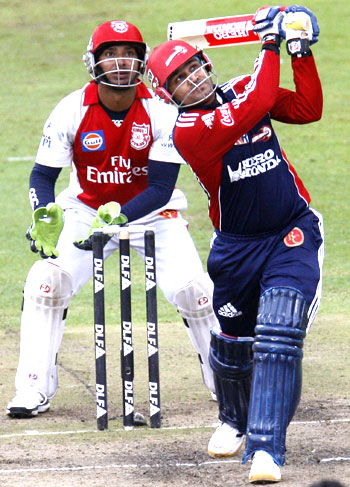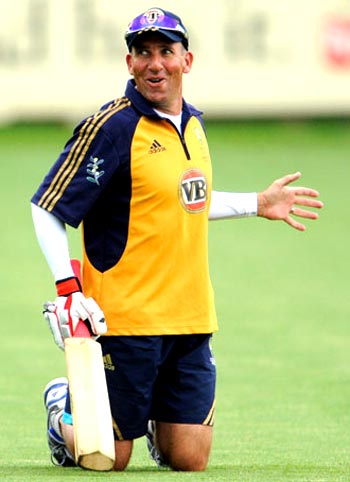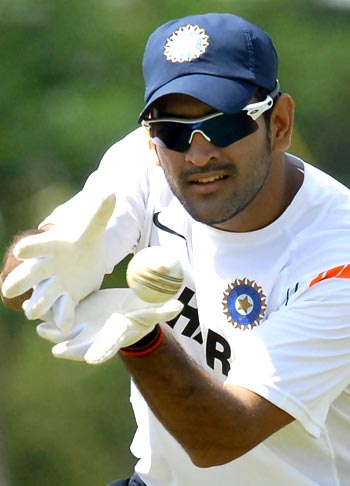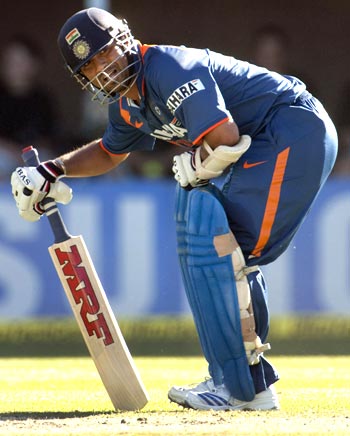Bikash Mohapatra Mumbai
The phrase, 'the more the merrier', seems to be a passe. At least, when it comes to cricket.
The biggest malady afflicting the gentleman's game is the 'problem of plenty'.
While the Twenty20 version of the game, especially the Indian Premier League, is gaining in popularity among aficionados, it has also ensured more revenue and, consequently, further jam-packed the already-busy international calendar.
With the administrators keen on making hay while the sun shines, the year is packed with a plethora of bilateral series, a few tri-nation tournaments, at least one flagship event and two domestic events camouflaged as international events -- the IPL and the Champions League.
'Matches scheduled keeping television interests in mind'
Image: Tim NielsenAnd plenty of matches have subsequently resulted in problems aplenty.
Simply put, more matches compound a team's existing cup of woes. Too much cricket means extensive traveling, weariness, a spate of injuries and a sense of ennui. But that is precisely the problem with the game now.
The ongoing seven-match series between India and Australia is a case in point. Coming close on the heels of the Champions Trophy, the Champions League - and even the Ashes for that matter - and just ahead of the busy summer Down Under, the excess of cricket has resulted in a swelling injury list for the Australians. No wonder they are complaining.
"A packed schedule does make things difficult," admits Tim Nielsen, Australia's coach. "We have spoken about the utility of a seven-game series for some time now.
"But more matches are scheduled keeping television interests in mind," he adds, in a direct reference to the ongoing series.
Excessive cricket equals long injury list
Image: Brett LeeNielsen's point is pertinent.
Excessive matches have resulted in Australia facing many injury worries and loss of the services of key players like Michael Clarke, Nathan Bracken, Brett Lee, James Hopes, Peter Siddle, Tim Paine and Moises Henriques. And it is certainly not a good sign ahead of a busy summer.
Captain Ricky Ponting is the first one to admit it.
"There is nothing we can do about it," he says. "We knew what was ahead for us in the next four months.
"And players getting injured is beyond our control. But to our advantage the replacements have responded well."
'A longer calendar is not a problem for us'
Image: M S DhoniHowever, if there are some who do not hesitate to be vocal about the packed calendar, there are others who have accepted it as an eventuality, a bitter truth.
"We have to play throughout the year and don't have much longer breaks," admits Mahendra Singh Dhoni.
"So a longer calendar is not a problem for us. And two days is the maximum gap that we can have in between games," he adds, in an obvious reference to the schedule of the ongoing tour.
Team India lacks focus
Image: Sachin TendulkarTeam India too has had to endure injury worries because of the excess matches - Zaheer Khan, Yuvraj Singh, Virender Sehwag, Gautam Gambhir and even, Sachin Tendulkar have had injury problems of late.
But India's main problem has been something else - lack of focus. More matches mean the players tend to lose focus at some point and that reflects in the results, as is the case in the ongoing series when the team capitulated despite leading early on.
Dhoni though denies the same.
"It is not difficult for us to maintain the intensity levels," he avers.
Team India's recent record, however, does suggest that the captain has either got it wrong here or doesn't want to admit it.
And both the options can only ensure a tighter schedule for India in the years to come.






Comment
article